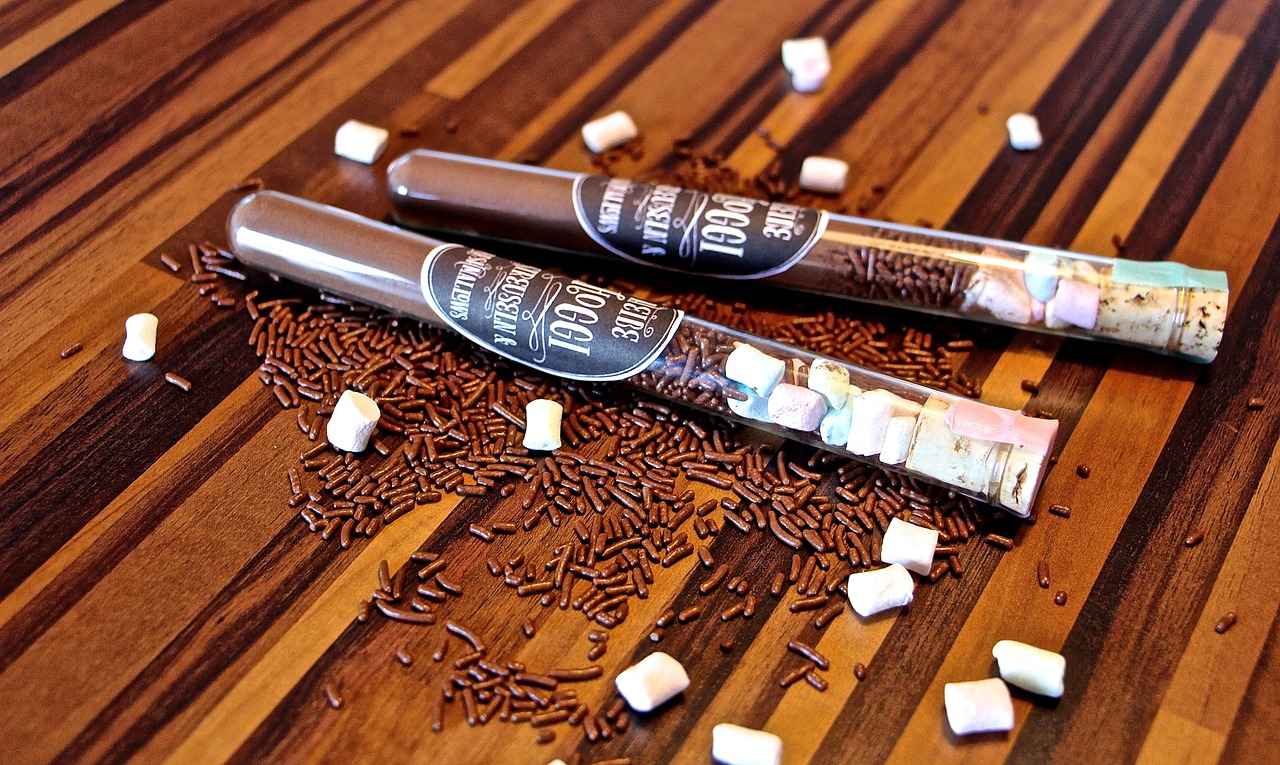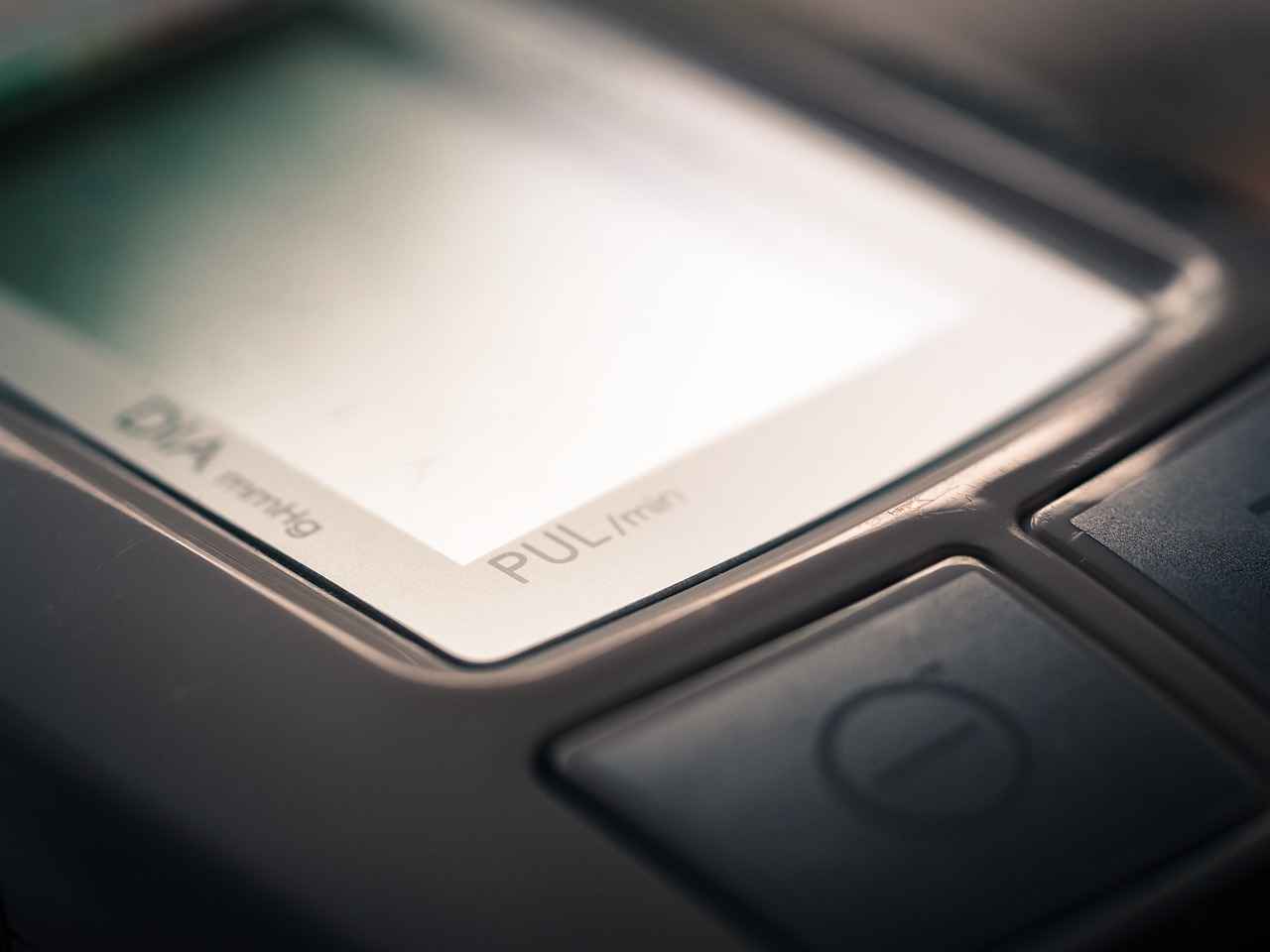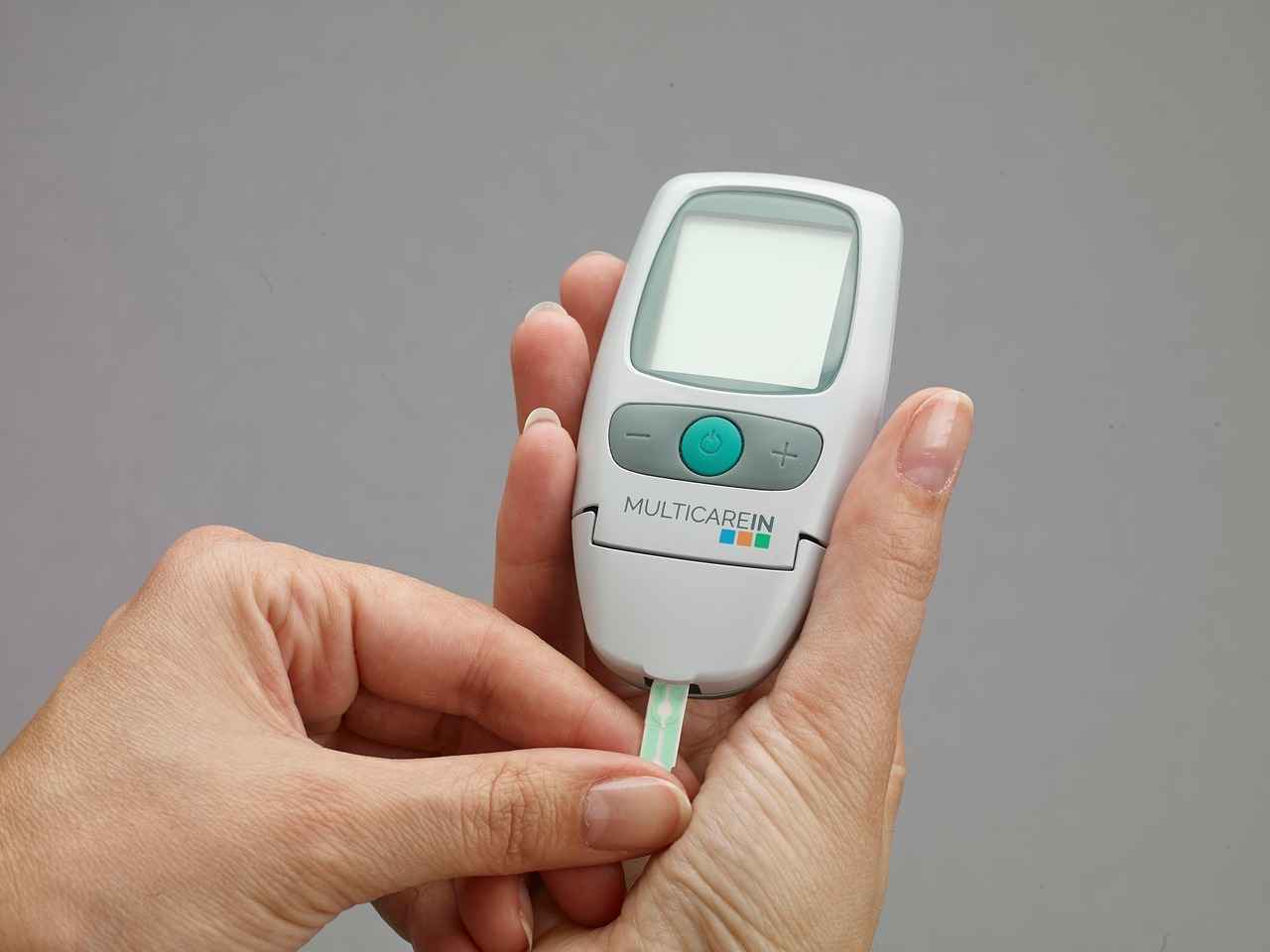This article explores the guidelines and recommendations regarding water consumption during fasting for blood tests, providing insights into its impact on test results and health considerations.
What is Fasting for Blood Work?
Fasting for blood work involves abstaining from food and certain beverages for a specific period before undergoing medical tests. This practice is critical for obtaining accurate results, as it minimizes variables that could affect the outcomes. Understanding the necessity of fasting helps patients comply with testing protocols and ensures their health is assessed accurately.
Why is Fasting Necessary for Certain Blood Tests?
Fasting is particularly essential for tests that measure glucose and lipid levels, as these can fluctuate based on recent food intake. For example, the fasting blood glucose test is a primary method for diagnosing diabetes, while lipid panels are crucial for evaluating cardiovascular health. In this section, we will detail which tests require fasting and the reasons behind these requirements.
- Common Blood Tests Requiring Fasting:
- Fasting Blood Glucose Test
- Lipid Panel Test
- Basic Metabolic Panel
Can You Drink Water While Fasting for Blood Work?
One of the most common questions regarding fasting is whether water consumption is permitted. Generally, drinking water is allowed and even encouraged, as it helps maintain hydration and can make blood draws easier. However, it is essential to consider the amount and timing of water intake to avoid any potential dilution of blood samples.
The Benefits of Staying Hydrated
Proper hydration before a blood test can improve circulation, making it easier for healthcare professionals to obtain a sample. Additionally, staying hydrated supports overall health and can help alleviate feelings of dizziness or faintness that some may experience during fasting.
Potential Risks of Drinking Water
While water is generally safe to consume during fasting, excessive intake can lead to dilution of blood samples, potentially skewing results. It is crucial to find a balance between staying hydrated and ensuring the integrity of the test results.
Guidelines for Water Intake Before Blood Tests
Understanding how much and when to drink water is vital for patients preparing for blood work. Here are some practical recommendations:
- Recommended Amount of Water: Aim for about 8 ounces of water a few hours before your test. This amount is generally sufficient to stay hydrated without risking dilution.
- Timing Your Water Intake: Drink water in moderation during the fasting period, ideally a couple of hours before your appointment to allow for proper hydration.
What to Avoid While Fasting for Blood Work
In addition to food, there are several other substances that patients should avoid during fasting to ensure accurate blood test results:
- Foods and Beverages to Avoid: Steer clear of any solid foods, sugary drinks, and alcohol, as these can interfere with test outcomes.
- Medications and Supplements: Some medications may affect blood test results. Consult with your healthcare provider regarding what to do with your medications during the fasting period.
By adhering to these guidelines, patients can ensure their blood tests yield accurate and reliable results, ultimately aiding in effective health management.

What is Fasting for Blood Work?
Fasting for blood work is a critical process that involves abstaining from food and certain beverages prior to undergoing medical tests. This practice is essential for obtaining accurate test results, as it minimizes the influence of various dietary factors on the measurements taken during the blood analysis. Understanding the importance of fasting can help patients better prepare for their tests and ensure that their healthcare providers receive reliable data.
When patients are instructed to fast, it typically means they should refrain from consuming anything except water for a specified period, often ranging from 8 to 12 hours before the test. The rationale behind this requirement is that food and drink can significantly alter the levels of substances in the blood, such as glucose and lipids, which are crucial for diagnosing various medical conditions.
For instance, the fasting blood glucose test is designed to measure the baseline level of sugar in the blood, which is critical for diagnosing diabetes. If a patient consumes food or sugary drinks before the test, it can lead to misleading results, potentially resulting in an incorrect diagnosis. Similarly, a lipid panel test assesses cholesterol levels, and fasting is necessary to obtain a clear picture of a patient’s cardiovascular health. Without fasting, the presence of recently consumed food can artificially elevate lipid levels, skewing the assessment of cardiovascular risk.
Moreover, fasting helps eliminate variables that could interfere with the interpretation of results. For example, certain medications and supplements can also affect blood test outcomes, making it even more crucial to adhere to fasting guidelines. Patients should consult their healthcare provider about any medications they are taking and whether they should continue them during the fasting period.
While fasting is necessary for many tests, it is important to note that not all blood tests require abstaining from food. Some tests can be conducted without fasting, allowing for a more flexible approach for patients. Understanding which tests necessitate fasting and which do not can significantly ease the anxiety associated with blood work.
In summary, fasting for blood work plays a vital role in ensuring the accuracy of test results. By abstaining from food and certain beverages, patients help their healthcare providers obtain reliable data that is essential for effective diagnosis and treatment. Being informed about the reasons behind fasting can empower patients to take an active role in their health management.

Why is Fasting Necessary for Certain Blood Tests?
Fasting is a critical component of many blood tests, serving to ensure that results are as accurate and reliable as possible. By abstaining from food and certain beverages for a specified period before the test, patients help eliminate variables that could distort the outcomes. This practice is particularly important for tests that measure glucose and lipid levels, as these can be significantly affected by recent dietary intake.
When we consume food, our bodies undergo various metabolic processes that can temporarily alter the levels of substances in our blood. For instance, eating can lead to a spike in blood sugar levels, which can mislead healthcare providers in diagnosing conditions such as diabetes. Similarly, lipid levels, including cholesterol and triglycerides, can fluctuate based on recent meals. Therefore, fasting helps to establish a baseline that reflects the body’s natural state, free from the influence of recent dietary changes.
- Fasting Blood Glucose Test: This test is essential for diagnosing diabetes and prediabetes. Fasting for at least 8 hours prior to the test is recommended to ensure accurate blood sugar readings.
- Lipid Panel Test: A lipid panel measures cholesterol levels, including LDL (bad cholesterol) and HDL (good cholesterol). Fasting for 9-12 hours before this test helps provide reliable data on cardiovascular health.
- Basic Metabolic Panel: This test assesses various substances in the blood, including glucose, calcium, and electrolytes. Fasting is necessary to obtain accurate glucose levels.
Fasting is not just about abstaining from food; it also involves avoiding certain drinks, particularly those that contain calories. Water is typically allowed and encouraged during fasting periods, as it helps maintain hydration without influencing test results. However, other beverages, including coffee, tea, and sugary drinks, can introduce variables that may skew the readings.
Moreover, the duration of fasting can vary depending on the specific test being conducted. While some tests may require an overnight fast, others may only necessitate a shorter duration. It is essential for patients to follow the guidelines provided by their healthcare providers to ensure the accuracy of their test results.
Accurate blood test results are vital for effective diagnosis and treatment. Misleading results due to improper fasting can lead to unnecessary anxiety, additional tests, or even inappropriate treatments. For example, a falsely elevated blood sugar level might prompt a diagnosis of diabetes when, in fact, the patient is healthy. Therefore, understanding the reasons behind fasting requirements is crucial for both patients and healthcare providers.
In summary, fasting is a necessary practice for certain blood tests to eliminate variables that could distort results. By adhering to fasting guidelines, patients can help ensure that their test outcomes are accurate, leading to better-informed healthcare decisions. Always consult with a healthcare professional regarding specific fasting requirements for your blood tests to achieve the best possible results.
Common Blood Tests Requiring Fasting
When it comes to blood tests, understanding the requirements for fasting is essential for obtaining accurate results. Certain tests necessitate that patients refrain from eating or drinking anything except water for a specified period before the test. This practice helps eliminate variables that could affect the readings, particularly for tests measuring blood sugar and cholesterol levels. Below, we outline the most common blood tests that require fasting, emphasizing their significance in health diagnostics.
- Fasting Blood Glucose Test: This test measures the level of glucose in your blood after fasting for at least 8 hours. It is primarily used to diagnose diabetes or prediabetes. Fasting is crucial because it ensures that the test reflects your baseline blood sugar level without interference from recent food intake.
- Lipid Panel Test: This panel assesses cholesterol levels, including low-density lipoprotein (LDL), high-density lipoprotein (HDL), and triglycerides. Patients are typically required to fast for 9-12 hours prior to the test. Fasting helps provide a clearer picture of lipid levels, which is vital for evaluating cardiovascular health and risk factors.
- Comprehensive Metabolic Panel (CMP): This test evaluates various metabolic functions and includes tests for glucose, electrolytes, and kidney and liver functions. Fasting is often recommended for 8-12 hours to ensure accurate glucose and electrolyte levels.
- Basic Metabolic Panel (BMP): Similar to the CMP, the BMP assesses glucose, calcium, and electrolyte levels. Fasting for at least 8 hours is usually advised to avoid skewed results, particularly for glucose levels.
- Iron Studies: Tests that measure iron levels in the blood often require fasting. This includes tests for serum iron, ferritin, and total iron-binding capacity, which help diagnose conditions like anemia. Fasting helps ensure that recent food intake does not affect iron absorption and levels.
Fasting before these tests is essential as it minimizes the influence of food and drink on the results. Accurate readings are critical for diagnosing conditions and determining appropriate treatment plans. Patients should always consult their healthcare provider for specific instructions on fasting duration and any exceptions that may apply.
In conclusion, understanding which blood tests require fasting and the reasons behind this practice can help patients prepare effectively. By adhering to fasting guidelines, individuals can ensure that their test results are reliable, leading to better health outcomes.
Fasting Blood Glucose Test
The is a critical diagnostic tool used to measure blood sugar levels, primarily aimed at identifying diabetes. This test requires patients to fast for a specific period, usually 8 to 12 hours, before their blood is drawn. In this section, we will delve into the reasons why fasting is essential for this test and what the expected results can indicate about an individual’s health.
Why is Fasting Important?
Fasting is crucial for the fasting blood glucose test because it eliminates the influence of recent food intake on blood sugar levels. When a person eats, their blood glucose levels rise as carbohydrates are broken down into glucose. If a patient does not fast, the test results may show elevated glucose levels, potentially leading to a misdiagnosis of diabetes or prediabetes. By fasting, the test can provide a clearer picture of how the body regulates blood sugar without the interference of recent meals.
What to Expect from the Results
The results of the fasting blood glucose test are measured in milligrams per deciliter (mg/dL). Here’s a breakdown of what the results typically indicate:
- Normal: A fasting blood glucose level below 100 mg/dL is considered normal.
- Prediabetes: Levels ranging from 100 to 125 mg/dL suggest prediabetes, indicating an increased risk of developing type 2 diabetes.
- Diabetes: A fasting blood glucose level of 126 mg/dL or higher on two separate tests confirms a diagnosis of diabetes.
Preparing for the Test
To ensure accurate results, patients should follow specific guidelines before the test:
- Avoid food: No food should be consumed for at least 8 hours before the test.
- Limit physical activity: Strenuous exercise can affect glucose levels, so it’s best to avoid it before testing.
- Consult your doctor: If you are taking medications or have health concerns, discuss these with your healthcare provider prior to the test.
Understanding Variations in Results
It is important to note that various factors can influence fasting blood glucose levels, including:
- Stress: Physical or emotional stress can temporarily raise blood sugar levels.
- Illness: Infections or illnesses can affect glucose metabolism.
- Medications: Certain medications may impact blood sugar levels, so always inform your doctor about any drugs you are taking.
In summary, the fasting blood glucose test is a vital procedure for diagnosing diabetes. Understanding the importance of fasting, the implications of the results, and how to prepare for the test can greatly enhance the accuracy of the diagnosis and subsequent management of diabetes. By adhering to fasting guidelines and consulting with healthcare professionals, patients can ensure they receive the most reliable information regarding their blood glucose levels.
Lipid Panel Test
The is a crucial diagnostic tool used to evaluate cholesterol levels in the blood. This test measures various types of lipids, including low-density lipoprotein (LDL), high-density lipoprotein (HDL), and triglycerides. Understanding the results of this test is essential for assessing an individual’s cardiovascular health and determining the risk of heart disease.
One important aspect of the lipid panel test is the requirement for fasting prior to the test. Fasting typically means abstaining from all food and beverages except for water for a period of 9 to 12 hours before the blood draw. This is because consuming food can significantly alter lipid levels, leading to inaccurate test results. For instance, a meal high in fats can temporarily elevate triglyceride levels, which may misrepresent a person’s typical lipid profile.
Research indicates that fasting can lead to more stable and reliable measurements of lipid levels. When fasting, the body is in a state of homeostasis, allowing for a clearer picture of lipid metabolism. Furthermore, fasting helps to eliminate the immediate effects of dietary intake, which can vary widely from person to person. This variability can complicate the interpretation of results and make it difficult for healthcare providers to accurately assess cardiovascular risk.
Moreover, the accuracy of the lipid panel test is vital for effective risk assessment. Elevated LDL cholesterol, for example, is a well-known risk factor for heart disease. By having accurate lipid levels, healthcare providers can recommend appropriate interventions, such as lifestyle changes or medications, to lower the risk of cardiovascular events.
While fasting is generally recommended for lipid panels, some recent studies suggest that non-fasting lipid measurements may also be valid for certain populations. However, the traditional fasting lipid panel remains the gold standard in many clinical settings. Patients should always follow their healthcare provider’s instructions regarding fasting to ensure the most accurate results.
In summary, the lipid panel test is a fundamental component of cardiovascular risk assessment. Fasting before the test is crucial as it helps provide accurate lipid level measurements, which are essential for making informed health decisions. Patients should be aware of the importance of this test and adhere to fasting guidelines to achieve the best possible outcomes.
Alternative Tests That Do Not Require Fasting
Many patients dread the idea of fasting before blood tests, especially those who may have difficulty abstaining from food and drink. Fortunately, not all blood tests require fasting, providing more accessible options for individuals who might struggle with this requirement. In this section, we will explore various blood tests that can be performed without fasting, emphasizing their importance and relevance in routine health assessments.
Understanding Non-Fasting Blood Tests
Non-fasting blood tests are designed to deliver accurate results without the need for patients to refrain from eating or drinking. These tests can be crucial for ongoing health monitoring and are often more convenient for those with busy lifestyles or specific health conditions.
- Complete Blood Count (CBC): A CBC is a common test that evaluates overall health and detects a variety of disorders, such as anemia and infection. This test does not require fasting, making it easy for patients to undergo.
- Thyroid Function Tests: These tests measure hormones produced by the thyroid gland and help diagnose conditions like hypothyroidism or hyperthyroidism. Patients can eat and drink normally before these tests.
- Basic Metabolic Panel (BMP): A BMP assesses glucose levels, electrolyte balance, and kidney function. While fasting is preferred for certain components, it is not strictly required for all aspects of the panel.
- Vitamin D Levels: Testing for vitamin D does not necessitate fasting. This test is crucial for assessing bone health and overall wellness.
- Iron Studies: These tests evaluate iron levels and can help diagnose conditions such as iron deficiency anemia. Fasting is not required, allowing for more flexibility.
Advantages of Non-Fasting Tests
There are several advantages to opting for non-fasting blood tests:
- Convenience: Patients can schedule tests at any time of day without worrying about fasting periods, making it easier to fit into their daily routines.
- Reduced Anxiety: The pressure to fast can induce anxiety in some individuals. Non-fasting tests alleviate this concern, leading to a more relaxed experience.
- Improved Compliance: Patients are more likely to follow through with necessary blood tests if they do not have to fast, leading to better health outcomes.
Consulting with Healthcare Providers
It is essential for patients to consult with their healthcare providers about which tests require fasting and which do not. Providers can offer personalized advice based on individual health needs and medical history. Additionally, they can explain the significance of each test and how it contributes to overall health assessments.
Conclusion
In summary, understanding that many blood tests do not require fasting opens up more options for patients. By being aware of these alternatives, individuals can better manage their health without the added stress of fasting. Always consult with a healthcare professional to determine the best approach for your specific health needs.

Can You Drink Water While Fasting for Blood Work?
When preparing for blood work, many patients find themselves grappling with the question of whether drinking water is permissible during fasting. This topic often generates confusion, as fasting guidelines can vary depending on the type of test being conducted. In this section, we will clarify the rules surrounding water consumption while fasting and explore its implications for blood test results.
Understanding Fasting Guidelines
Fasting typically means abstaining from all food and beverages for a specified period before a blood test. However, the guidelines regarding water consumption can differ by test type. Most healthcare professionals agree that drinking water is generally acceptable and even encouraged, as it helps maintain hydration and can facilitate the blood draw process.
The Benefits of Staying Hydrated
- Improved Blood Flow: Staying hydrated helps to increase blood volume, making it easier for healthcare providers to draw blood.
- Reduced Risk of Dehydration: Adequate water intake can prevent dehydration, which might otherwise complicate the blood draw.
- Enhanced Overall Health: Proper hydration supports various bodily functions, ensuring that your body is in optimal condition for testing.
Potential Risks of Drinking Water
While moderate water consumption is largely beneficial, it’s important to be mindful of the quantity. Drinking excessive amounts of water may lead to dilution of blood samples, potentially skewing test results. For example, if you are undergoing a glucose test, excessive hydration might lower blood sugar levels, leading to inaccurate readings.
Guidelines for Water Intake Before Blood Tests
To optimize hydration without compromising test accuracy, consider the following recommendations:
- Recommended Amount of Water: Aim to drink a moderate amount of water—about 8 ounces—before your appointment. This amount is usually sufficient to keep you hydrated without risking dilution.
- Timing Your Water Intake: It is advisable to drink water in the hour leading up to your blood test. This timing allows for hydration while minimizing the risk of dilution.
What to Avoid While Fasting for Blood Work
In addition to food, there are several substances you should avoid to ensure the accuracy of your blood test results:
- Caffeinated Beverages: Drinks like coffee or tea can affect hydration levels and potentially alter test results.
- Alcohol: Alcohol consumption should be avoided for at least 24 hours before testing, as it can impact liver function and lipid levels.
- Medications and Supplements: Some medications may interfere with test results. Always consult with your healthcare provider regarding any medications you are taking.
Conclusion
In summary, drinking water while fasting for blood work is generally permissible and can be beneficial. Staying hydrated helps improve the blood draw experience and supports overall health. However, it is essential to find a balance, as excessive water intake can dilute blood samples. Always follow your healthcare provider’s specific instructions regarding fasting and water consumption to ensure the most accurate test results.
The Benefits of Staying Hydrated
Staying hydrated before blood tests is not just a matter of comfort; it significantly impacts the quality of the blood sample and overall health. Hydration plays a crucial role in facilitating blood draws and ensuring accurate test results. In this section, we will delve into the numerous advantages of drinking water during fasting periods.
- Enhanced Blood Volume: Adequate hydration increases blood volume, making veins more prominent and easier to access. This can lead to a smoother blood draw experience, reducing the likelihood of multiple attempts.
- Improved Sample Quality: Well-hydrated individuals typically provide better-quality samples. Hydration helps in maintaining viscosity, which is crucial for accurate laboratory analysis.
- Reduced Risk of Dehydration Effects: Dehydration can lead to complications such as dizziness or fainting during blood tests. Staying hydrated mitigates these risks, ensuring a safer experience.
- Faster Recovery: After a blood draw, hydration aids in recovery. It helps replenish lost fluids and can minimize any post-draw fatigue or discomfort.
- Support for Overall Health: Drinking water is essential for maintaining various bodily functions, including digestion and circulation. Staying hydrated before a blood test can contribute to better overall health, which is beneficial for accurate test results.
Furthermore, hydration can influence specific test results. For instance, in tests measuring glucose or cholesterol levels, proper hydration may help in achieving more reliable readings. This is particularly important for individuals managing conditions like diabetes or cardiovascular diseases.
It is essential to note that while staying hydrated is beneficial, moderation is key. Excessive water intake can potentially dilute blood samples, leading to inaccurate results. Therefore, it is advisable to drink a reasonable amount of water prior to the test, typically around 8 to 12 ounces, unless otherwise directed by your healthcare provider.
In summary, the benefits of staying hydrated before blood tests extend beyond the immediate convenience of a blood draw. Proper hydration enhances the quality of the sample, reduces discomfort, and supports overall health, making it a vital consideration for anyone preparing for blood work.
Potential Risks of Drinking Water
When preparing for blood work, many patients wonder about the role of water consumption during fasting. While staying hydrated is generally encouraged, it is essential to understand the potential risks associated with drinking too much water before a blood test. This section delves into the balance between adequate hydration and the accuracy of test results.
Water plays a crucial role in the body, helping to maintain homeostasis, regulate temperature, and support various bodily functions. However, excessive water intake prior to blood tests can lead to a condition known as dilutional pseudohyponatremia. This occurs when the concentration of sodium in the blood appears falsely low due to an increased volume of water in the bloodstream.
When blood samples are diluted, the results may not accurately reflect the patient’s true health status. For instance, tests measuring glucose levels may show a lower reading than actual, potentially leading to misdiagnosis or inappropriate treatment plans. Similarly, lipid panels may indicate misleading cholesterol levels, impacting cardiovascular risk assessments.
Furthermore, excessive hydration can also affect the viscosity of blood. Thinner blood can complicate the blood draw process, making it more challenging for healthcare professionals to obtain samples. This can result in multiple needle sticks, causing unnecessary discomfort for the patient.
To mitigate these risks, it is important to find a balance. Generally, drinking a moderate amount of water—about 8 to 12 ounces—before a blood test is advisable. This amount ensures that the patient remains hydrated without significantly impacting the accuracy of the test results. Additionally, drinking water can help facilitate blood draws by making veins more prominent and easier to access.
Timing is also crucial. It is generally recommended to consume water at least one hour before the scheduled blood test to allow the body to process the fluid without causing immediate dilution of the blood sample. Patients should also avoid consuming any other beverages, especially those containing sugar or caffeine, as these can interfere with test results.
In summary, while staying hydrated is important when fasting for blood work, patients should be cautious about the amount of water they consume. Striking the right balance can help ensure that test results are accurate and reflective of the patient’s true health status. By adhering to recommended guidelines for water intake, individuals can contribute to the reliability of their blood tests while maintaining their overall well-being.

Guidelines for Water Intake Before Blood Tests
When preparing for blood tests, understanding the guidelines for water intake is essential for patients. Proper hydration can significantly impact the accuracy of test results and the overall experience during the procedure. This section offers practical recommendations to ensure optimal hydration while fasting.
Staying adequately hydrated before a blood test is crucial. Water helps in facilitating blood draws and can make the veins more visible, which is beneficial for phlebotomists. Additionally, proper hydration can help reduce feelings of dizziness or faintness that some patients may experience during blood draws.
Generally, it is advisable to drink at least 8 ounces of water prior to your blood test. This amount helps maintain hydration without overwhelming the system. However, individual needs may vary based on factors such as body weight and overall health. It is best to consult with your healthcare provider for personalized recommendations.
The timing of your water consumption can also influence test outcomes. It is recommended to drink water 1-2 hours before your appointment. This allows enough time for your body to process the water while still ensuring you remain hydrated. Avoid drinking water immediately before the test to minimize the risk of dilution of the blood sample.
While staying hydrated is important, excessive water intake can lead to dilution of blood samples, which may skew test results. It is essential to find a balance and avoid drinking large quantities of water right before the test. If you have any concerns about your hydration levels, consult with your healthcare provider.
When preparing for blood tests, it is best to stick to plain water. Avoid flavored waters, juices, or any beverages that contain calories or additives, as these can interfere with the fasting process and potentially affect test results.
For patients with diabetes, it is crucial to monitor hydration levels carefully. While water is generally safe, consulting a healthcare professional is advisable to ensure that hydration does not interfere with blood glucose levels, especially before tests like the fasting blood glucose test.
Ultimately, the best approach to hydration before blood tests is to consult with your healthcare provider. They can provide tailored advice based on your medical history and the specific tests you are undergoing.
In summary, understanding the guidelines for water intake before blood tests can greatly enhance the experience and accuracy of the results. By following these recommendations, patients can ensure they are well-prepared for their tests.
Recommended Amount of Water
When preparing for a blood test, understanding the to drink is crucial. Proper hydration can enhance the experience of blood draws and ensure that test results are accurate. However, it is essential to strike a balance to avoid any potential dilution of blood samples.
Generally, it is advisable to drink 8 to 10 ounces of water prior to your blood test. This amount is sufficient to keep you hydrated without overwhelming your system. Staying hydrated can make veins more prominent, which can facilitate a smoother blood draw. However, drinking excessively large amounts of water, particularly right before the test, may lead to dilution of blood components, potentially skewing the results.
It’s important to note that while water is typically allowed, other beverages such as coffee, tea, or juices should be avoided during fasting periods as they can introduce substances that may interfere with test results.
- Hydration Benefits: Adequate water intake helps maintain normal blood viscosity, making it easier for healthcare professionals to draw blood.
- Timing Matters: Aim to drink your water about 30 minutes to 1 hour before your appointment to ensure you are adequately hydrated.
For those who may feel anxious about fasting or blood tests, staying hydrated can also help alleviate some of the stress associated with the procedure. Being well-hydrated not only supports your physical health but can also contribute to a more relaxed state of mind as you prepare for the test.
Another consideration is to listen to your body. If you feel thirsty, it’s a good indicator that you should drink some water. However, always remember to keep it within the recommended amounts to avoid any potential issues.
In summary, knowing how much water to drink before a blood test can significantly impact your experience. Aim for 8 to 10 ounces of water, and ensure that you consume it at the right time to maintain optimal hydration without affecting the accuracy of your test results. By following these guidelines, you can approach your blood test with confidence and ease.
Timing Your Water Intake
When preparing for blood tests, the timing of your water intake can play a significant role in ensuring accurate results. This section delves into the optimal times for drinking water while fasting, helping you maintain proper hydration without compromising the integrity of your test results.
Understanding the Importance of Timing
Hydration is essential, especially when fasting for blood work. However, the timing of water consumption can influence the outcomes of certain tests. For instance, drinking water too close to the test time may lead to dilution of blood samples, potentially skewing results. Therefore, it is crucial to strike a balance between staying hydrated and adhering to fasting guidelines.
Recommended Timing for Water Intake
- It is generally advisable to drink water at least 1-2 hours before your scheduled blood test. This allows your body to process the water and helps ensure that your blood sample reflects accurate levels of substances being measured.
- Avoid drinking large quantities of water immediately before the test. Instead, sip water throughout the fasting period to maintain hydration.
- If your test is scheduled early in the morning, consider drinking a glass of water the night before, as long as it doesn’t interfere with your fasting period.
How Much Water Should You Drink?
While staying hydrated is essential, moderation is key. Aim to consume around 8-16 ounces of water during your fasting period. This amount is typically sufficient to keep you hydrated without affecting your blood test results. Overhydration can lead to a condition known as dilutional hyponatremia, where sodium levels in the blood drop too low due to excessive water intake.
Listening to Your Body
Every individual’s body reacts differently to fasting and hydration. Pay attention to your body’s signals. If you feel thirsty, it’s a sign that your body needs water. However, be mindful of how close to the test you are when you drink. It’s essential to find a balance that suits your needs while still adhering to fasting guidelines.
Consulting with Healthcare Providers
Always consult with your healthcare provider regarding specific instructions for your blood test. They can provide tailored advice based on the type of test you are undergoing and your individual health needs. Some tests may have specific hydration requirements, and your healthcare provider can guide you on the best practices for your situation.
Conclusion
In summary, timing your water intake during fasting for blood work is crucial for obtaining accurate test results. By following the recommended guidelines for water consumption, you can stay hydrated while ensuring that your blood samples reflect your true health status. Remember, when in doubt, always reach out to your healthcare professional for personalized advice.

What to Avoid While Fasting for Blood Work
When preparing for blood work, it is essential to understand that fasting is not just about abstaining from food. There are various substances that can interfere with test results, and avoiding them is crucial for obtaining accurate readings. This section outlines what patients should refrain from during fasting to ensure their blood test results are reliable.
In addition to food, several other substances can impact blood test outcomes. Here are the key items to avoid:
- Alcohol: Consuming alcohol can significantly affect liver function tests and lipid panels. It can lead to elevated liver enzymes and skew cholesterol levels, resulting in inaccurate test results.
- Caffeinated Beverages: Drinks containing caffeine, such as coffee and energy drinks, can alter blood pressure and heart rate. This may affect tests related to cardiovascular health and should be avoided during the fasting period.
- Fruit Juices: Even 100% fruit juices contain natural sugars that can raise blood glucose levels. This can interfere with tests meant to measure fasting glucose and insulin levels.
- Smoking: Nicotine can affect blood circulation and influence test results, particularly in tests measuring cardiovascular health. It is advisable to refrain from smoking during the fasting period.
- Chewing Gum: While it may seem harmless, chewing gum can stimulate saliva production and lead to the ingestion of small amounts of sugar or artificial sweeteners, which can affect certain blood tests.
Patients should also be cautious about medications and supplements during fasting. Some may influence test results:
- Prescription Medications: Certain medications can alter blood chemistry. It is crucial to consult with a healthcare provider about whether to take medications before fasting blood tests.
- Vitamins and Supplements: Some vitamins, especially those containing biotin, can interfere with hormone tests and other panels. It is recommended to avoid these supplements prior to testing.
While water is typically allowed during fasting, it is important to maintain a balance. Here are some hydration guidelines:
- Limit Water Intake: Although staying hydrated is beneficial, excessive water consumption can dilute blood samples, potentially skewing results. Aim for a moderate amount.
- Timing Matters: Drink water in moderation up until the time of the test. Avoid drinking large amounts immediately before the blood draw to prevent dilution.
In summary, ensuring accurate blood test results requires careful attention to what you consume during the fasting period. By avoiding specific foods, beverages, and substances, patients can help their healthcare providers obtain clear and reliable results, which are essential for effective diagnosis and treatment.
Foods and Beverages to Avoid
When preparing for blood work, it is crucial to understand that certain foods and beverages can significantly affect test results. To ensure the accuracy and integrity of your blood tests, here is a comprehensive list of items to avoid during your fasting period.
- Fried Foods: High in fats and oils, these foods can elevate triglyceride levels, skewing lipid panel results.
- Sugary Foods: Items like pastries, candy, and sugary cereals can spike blood glucose levels, affecting diabetes-related tests.
- Alcohol: Even small amounts can significantly alter liver function tests and glucose metabolism.
- Caffeinated Beverages: Coffee and energy drinks can affect hydration levels and may influence certain metabolic tests.
- High-Fiber Foods: Foods such as beans and whole grains can cause fluctuations in blood sugar levels, impacting glucose tests.
- Fruit Juices: Even 100% juice can contain sugars that affect glucose readings.
- Soft Drinks: Sugary sodas can lead to elevated glucose levels, similar to fruit juices.
- Sports Drinks: Often loaded with sugars and electrolytes, these drinks can interfere with hydration status and test accuracy.
- Milk and Dairy Products: These can introduce fats and sugars into your system, impacting cholesterol and glucose tests.
Each of these items can introduce variables that may lead to inaccurate test results. For instance, consuming fried foods before a lipid panel can result in artificially high cholesterol readings, while sugary items can misrepresent your blood glucose levels. By avoiding these foods and beverages, you allow for a clearer picture of your health status, leading to more accurate diagnoses and treatment plans.
- Plan Ahead: Schedule your blood test in the morning to minimize fasting time.
- Stay Hydrated: Drink water, as it is typically allowed and can help with blood draws.
- Communicate: Always inform your healthcare provider about any medications or supplements you are taking.
By adhering to these guidelines and avoiding specific foods and drinks, you can ensure your blood tests provide reliable results, aiding in effective health management.
Medications and Supplements
can significantly impact the results of blood tests, leading to potential misinterpretations and unnecessary medical interventions. Understanding how these substances affect test outcomes is crucial for patients preparing for blood work. This section provides essential guidance on managing medications and supplements during fasting periods.
When preparing for blood tests, it is vital to consider the medications and supplements you are currently taking. Some substances can alter the biochemical markers that healthcare providers rely on to diagnose conditions accurately. For instance, certain medications may increase or decrease glucose levels, lipid profiles, or liver enzymes, which can skew results and lead to misdiagnosis.
Consultation with Your Healthcare Provider is paramount. Before your blood test, discuss all medications, including over-the-counter drugs and herbal supplements, with your doctor or the laboratory personnel. This conversation is essential because some medications, such as corticosteroids and diuretics, can significantly influence test results. Your healthcare provider may advise you to pause specific medications temporarily or adjust the timing of your doses.
In addition to prescription medications, supplements can also interfere with blood tests. For example, vitamin E and fish oil supplements can affect bleeding times, while biotin can lead to false results in various hormone tests. It’s important to inform your healthcare provider about any vitamins or dietary supplements you are taking.
To ensure the most accurate results, consider the following guidelines:
- Timing of Medications: If your doctor advises you to continue taking certain medications, ensure you take them at the correct time before the test. Some medications may need to be taken after the blood draw to avoid interference.
- Duration of Fasting: Fasting typically requires abstaining from food and drink for 8 to 12 hours. Adhere to this guideline, as consuming medications with food may alter their absorption and, consequently, their effect on test results.
- Documentation: Keep a detailed list of all medications and supplements you are taking. This documentation can help healthcare providers make informed decisions about your care and test interpretations.
In conclusion, managing medications and supplements effectively is crucial for achieving accurate blood test results. By consulting with your healthcare provider and adhering to their recommendations, you can minimize the risk of interference and ensure that your test results reflect your true health status. Remember, being proactive about your medication management is an essential step in your healthcare journey.
Frequently Asked Questions
- Can I drink water while fasting for blood work?
Yes, you can generally drink water while fasting for blood work. Staying hydrated is important, as it can make blood draws easier and help maintain your overall health.
- How much water should I drink before my blood test?
It’s recommended to drink a moderate amount of water, typically around 8 ounces (about 240 ml), before your blood test. This helps keep you hydrated without risking dilution of your blood sample.
- Are there any risks associated with drinking water before blood tests?
While drinking water is usually safe, excessive consumption might dilute your blood sample, potentially affecting test results. It’s all about finding the right balance!
- What should I avoid during fasting for blood work?
Avoid any food, beverages other than water, and certain medications or supplements that might interfere with your test results. Always consult your healthcare provider for specific guidelines.
- Do all blood tests require fasting?
No, not all blood tests require fasting. Some tests can be conducted without fasting, so it’s essential to check with your healthcare provider about the specific requirements for your tests.














